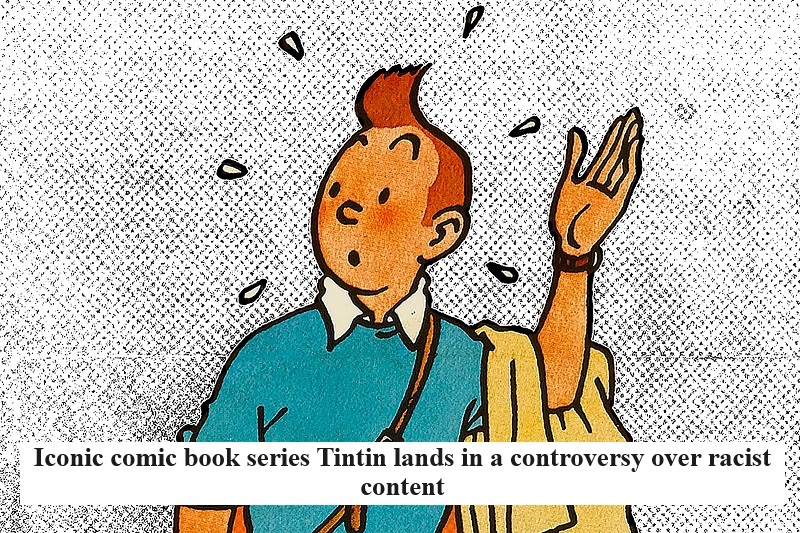
The classic comic book series Tintin has found itself embroiled in controversy once again, this time concerning the updated content of the book “Tintin in Congo.” The book, part of The Adventures of Tintin series by Belgian comic strip artist Herge, has long faced criticism for its racist content and has recently undergone revisions to address these concerns. Originally published in 1931, the second volume of the series has been widely condemned for its colonialist depiction of Africans.
Set in the Belgian Congo, a former colony that gained independence in 1960, the comic follows the adventures of Tintin, an intrepid reporter, as he encounters native people, wild animals, and a diamond-smuggling gangster. Over the years, the strip has faced increasing scrutiny for its perceived racist and colonialist treatment of the local population.
The new edition, released in November alongside two other Tintin books, includes a preface explaining the colonial context of the time. Changes to the story include a scene where Tintin teaches an African child mathematics, a departure from the original version where he teaches the child that its home nation is Belgium. The cover has also been altered, depicting Tintin facing off against a lion instead of sitting with a black child.
Patrick Lozes, founder of CRAN, a federation of anti-racism associations, commented on the changes, stating that the new edition acknowledges a time when it was considered acceptable to view blacks as inferior. He praised the addition of the preface, considering it a step in the right direction.
The preface, written by Philippe Goddin, head of the Friends of Herge association, primarily defends the creator’s record on racism, asserting that Herge “happily mocked everybody, whites and blacks.” Pascal Blanchard, a historian of colonialist propaganda, expressed surprise at the lack of a special announcement for the changes and criticized the preface as “highly debatable.” He rejected the notion that Herge’s work merely reflected the norms of his time, emphasizing that such claims were “facile and false.”
Herge, considered one of the leading cartoonists of the 20th century, acknowledged in 1975 that he drew Africans with a paternalistic perspective prevalent at the time, having limited knowledge of the Belgian Congo beyond contemporary conversations. Despite controversies, Tintin’s adventures have been translated into 130 languages, sold 260 million copies, and adapted into TV shows and a Hollywood film.

Post Your Comments